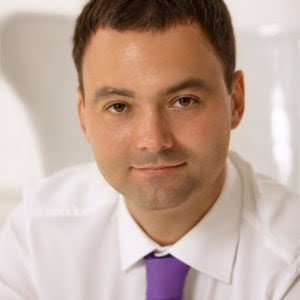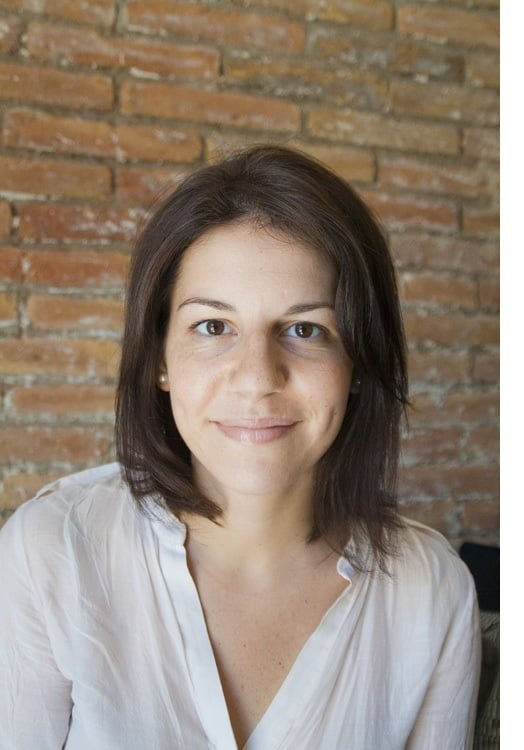How WEC2018 is a great visualisation for current event trends
Analysing event’s website is one of the key elements in my event review. I believe event website is a hallmark which can (or cannot) tell a whole lot about the event. Often there are similar questions raised around what should be there on a conference’s or forum’s website. So recently I’ve come across WEC2018 and found it a perfect reference to share with you. Not is it only an example of how to present and structure event information. It surprisingly came as a visual aid for event design trends. See for yourself.
Go Deep: 3 Psychological Effects an Event Planner Should Be Aware of

Today we hear and read a lot about psychological effects. Indeed, they heavily affect our perception, decision-making and communications. There are dozens of effects and today I’d like to focus on those that can be used by an event organiser precisely. I consider it is an important issue: by being aware of these consistent patters event planners can notice and manage them and thus, get desired outcomes.
Event Psychology – the Field of the Future for the MICE industry
Event management is a business based on people-to-people interaction – an intense, regular and multifaceted interaction. That’s why events are literally saturated with psychology. Understanding of some psychological principles and methods behind each step of event planning process, each communication, and each stakeholder gives an opportunity to make required adjustments on the go. Eventually it leads to more efficient outcomes for all interested parties.
Does it make sense to include a psychologist into the team of organisers? At first glance the idea sounds crazy. But let’s first see ‘how much’ psychology is there in any event, and ask this question again afterwards. (more…)
(more…)
Maths & Conference Management
I found ‘How to run a better conference using math’ a great read and highly recommend it to all eventprofs dealing with conferences of all sizes. It is a detailed case study of Web Summit where organisers embedded maths to the very core of event management. Furthermore, I can second every word about how every small detail of an event in fact shows the true approach of its organisers to the event in whole. It is a long read, but I am sure you’ll find a lot of useful staff there.
I would make two conclusions which seem most important to me:
1) using mathematical techniques and various metrics as their output should not be fashion statement. It works, and it is crucial to not just learn about it in theory, but try and apply it in practice. It does not matter if that would be just on a beginner level. By the way, the author reasonably mentions that if for some reason you are not ready to use the set of mathematical methods described, there are many other solutions, less complex but optimised and effective.
My main point here is that using maths in conference management should be a deliberate way forward for every event planner, no matter at which level.
2) that one:
‘In my view, if a conference organiser is not regularly reading academic papers on topics related to network science in particular, as well as crowd psychology and dynamics, way-finding, anthropometry and related areas; running controlled experiments at their conferences and conducting rigorous surveys of attendees of all types, I believe it’s challenging to improve each iteration of your conference’.
This in my view is a very important idea. We used to see calls for practical skills of eventprofs these days. And although I don’t mean to downplay the importance of practice, I fully agree with the idea. The above highlights that the conference organiser should not be a sole practitioner. They should also be an academician and learn from as many fields of knowledge as possible.
Truly – what a complex and amazing profession it is.
Small [Matey] Talk – with Alexey Fadeev
Our new Small [Matey] Talk is a kind of interview section on the blog. As title suggests, it’s just a ‘small talk; about events. Thus, it does not aim to be an eye-opener (although we hope it might well be!) or make any great discoveries, but rather it aims to get personal experiences and opinions on various aspects of event planning and design, from a variety of stakeholders (attendees, speakers, planners etc), in the spotlight. I hope you find this section interesting.
My first talk is with Alexey Fadeev, PhD in Economics, Senior Researcher at Institute of economic affairs (Kola Science Centre, Russian Academy of Science)

Events & Meetings Management Course…for Your Clients
Speaking same language is important indeed. Metaphorically, when you come to another country and are able to speak and understand at least some phrases or words in a foreign language, it becomes easier to handle some practicalities or just communicate your needs. Speaking generally, it opens up more opportunities. Well, it might not be same as if you speak that language fluently, but it definitely gives you some advantage, doesn’t it? Same applies when it comes to understanding the processes and practices behind organising an event.
Why is it important for a client to learn more deeply about how the work of an event manager/event agency is structured? Why is it important for event/meetingprofs to make more efforts and educate their clients on what and how they do their magic? Well, there is a number of compelling reasons for that.

Image credit: University of Surrey
Degree in event management: to be or not to be?
I’ve recently come across the interesting article on eventplanner.tv, about education for event professionals. It says, according to Tomas Pernecky, ‘it is only recently, with the international growth of planned events and new industry standards, that we can witness the increase of university programmes offering courses in event planning’. And ‘being a good planner is more about accumulating work experience than high grades. And the classroom is not necessarily the most appropriate environment to develop a problem-solving mindset and strong communication skills.’ Also, there are 5 ideas on what can be helpful instead of a degree in event management.
Well, while I do agree with the above, I thought I’d put down my arguments why it is still a good idea to try (and perhaps strive for) getting a degree. First of all, yes absolutely, it is possible to become an excellent eventprof without degree in this field. Surely it is. And I am sure there are great examples for that. But nonetheless I consider degree in events/meetings management to be huge advantage. I am not talking about such cases there is no time or money to study. I am thinking of those who might considering if studying is worth it.
I will copy all 5 ideas’ headings below and expand my point on each of them.

Image source: unsplash.com
A Day of the Meeting Architect
Today’s article is the first in a new category of interviews on Matey Events, and I am happy to share a great discussion with Rosa Garriga Mora, the Meeting Architect of Kenes Group.
Event Psychology Club
Online Course
What my clients and partners say
What If I Told You..? Event Psychology podcast
2018 ChangeMaker

Victoria Matey has been chosen as 2018 ChangeMaker by MeetingsNet
Top 100 Smart Women in Meetings

Victoria Matey has been named to the Top100 Smart Women in Meetings 2018.
Recent Posts
- Featured In
- Less talk. More experiments, please.
- 3 science-backed tips for effective event networking
- Why being imperfect can make your events thrive
- How to eliminate uncertainty and make the future of events bright(er)
- Event Analytics: How Can You Measure Emotions?
- The Anatomy of a (Effective) Pre-event Email
- 5+ Event Design Lessons for Better Engagement from Nudgestock 2021
- Science-backed tips to fight zoom fatigue at events
- 6 Behavioral Science Books Every Event Planner Should Read
Archives
Recent publications
- Featured In 20.11.2023
- Less talk. More experiments, please. 28.06.2022
- 3 science-backed tips for effective event networking 06.06.2022
- Why being imperfect can make your events thrive 21.12.2021
- How to eliminate uncertainty and make the future of events bright(er) 16.09.2021


